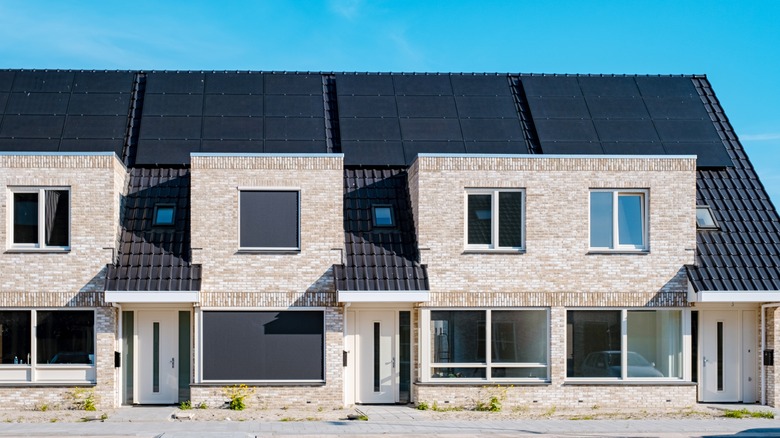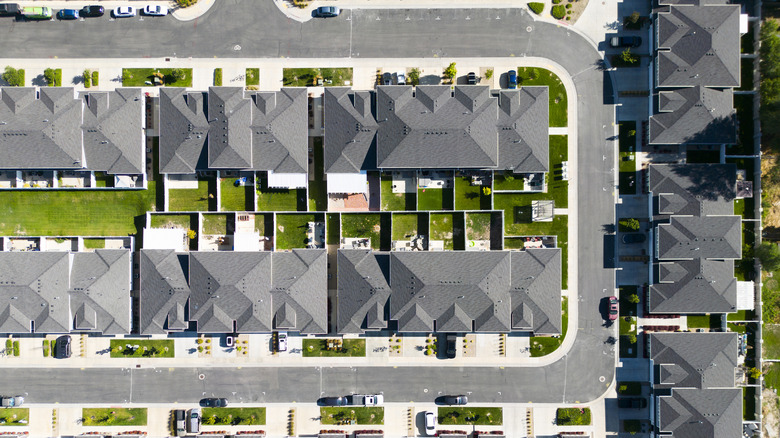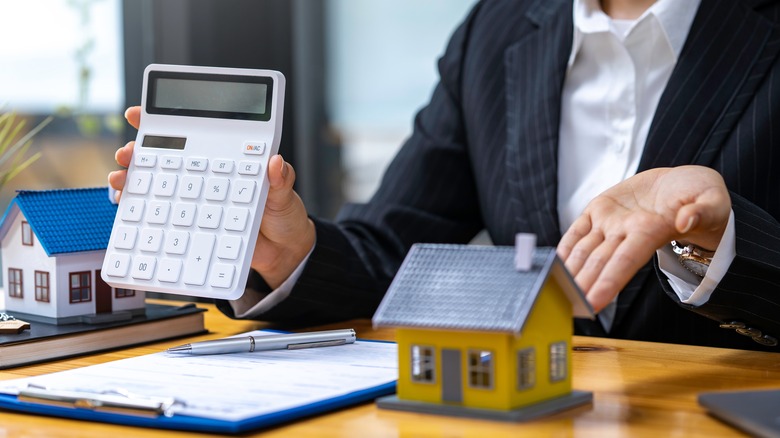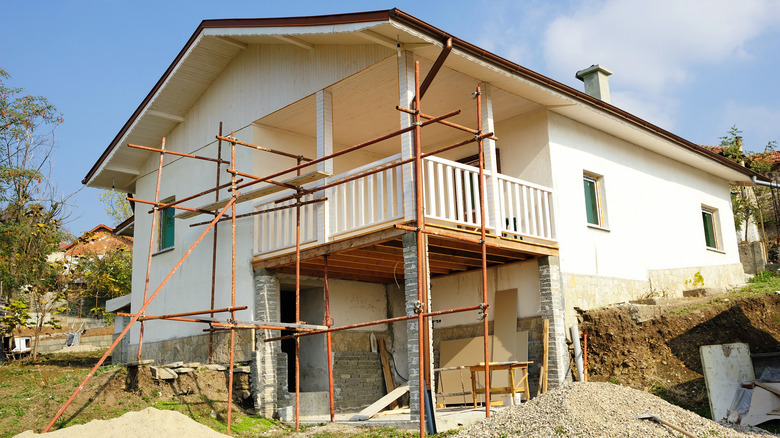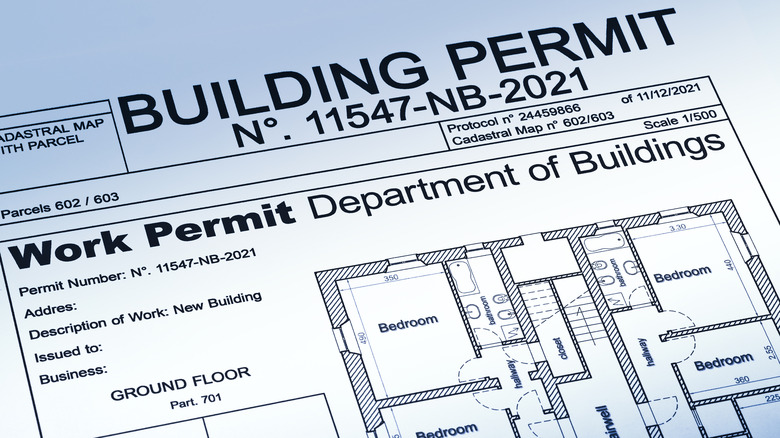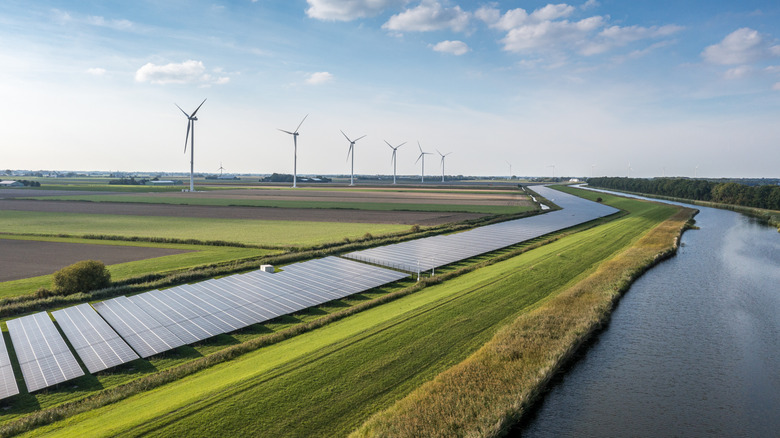5 Things To Consider Before Installing Solar Panels Where You Rent
Everyone's looking to reduce their carbon footprint these days, finding ways to both cut back on their regular consumption of electricity and draw power from renewable sources. When it comes to offsetting your power usage, installing solar panels on your home is a fairly simple route that can both cleanly supplement your power needs to help the environment and yield some nifty financial benefits. However, what are you supposed to do if you want to install solar panels on your home, but it isn't your home, strictly speaking?
Getting a set of solar panels installed when you live on a rental property is a bit trickier than doing it with something you own yourself. There are several layers of steps you need to go through to get the whole thing done, and even if you can get those panels installed, they may not reap precisely the same benefits you were hoping for. Having solar panels set up as a renter isn't an impossible task, but there are a few extra details you need to be mindful of beyond calling some contractors and having them bolt panels to your roof.
Permission from landlords and HOAs
The absolute first and foremost thing you need to do before you can have solar panels installed on your rental is getting the go-ahead from your landlord. Even if you live there, this isn't your property, legally speaking, so you don't have the final say on whether or not this can happen. If you want solar power, you're going to need to pitch the idea to your landlord or leasing company. If your rental doesn't already have solar power hooked up, there may be a reason for it, so it's on you to find out what that reason is and determine if it's a negotiable matter. Although it depends on various factors, including where you live, when you install the panels, and other factors, installing solar panels can have monetary benefits like tax credits. Solar panels can also increase your home's value, so that could be a good incentive to present to your landlord.
Of course, even if the landlord is okay with it, your neighbors might not be. If you live in a condominium or planned community, there may be a homeowner's association to contend with. Again, you'll need to go in front of the HOA to make your case for solar panel installation. If your community has some documentation available like a rulebook or charter, give it a read over before this. There may be policies in place that forbid solar panels outright, which could make this entire pursuit a nonstarter.
Insurance and rent changes
While solar panels are covered by most policies, the addition of a solar setup could necessitate a slight increase in insurance premiums. However, in this particular circumstance, you aren't the homeowner, which means any changes to insurance would be on your landlord or leasing company to handle. That means yet another hurdle you'll need to jump over to convince them of the efficacy of solar panel installation.
Additionally, if the solar panels are being installed on the ground, separate from the building itself, your landlord may need to take out an entirely separate insurance policy on them. These hikes and policies could, unfortunately, be passed onto you in the form of a monthly rent or utility increase. Considering you're probably not going to get any of the tax benefits from solar panel installation yourself, you need to be prepared for price hikes if you're really committed to reducing your carbon footprint. Solar panels can take years to pay for themselves in normal circumstances, so if they're not directly benefitting you, don't expect those price hikes to go away any time soon.
Wiring and structural integrity
Obviously, not all homes around the United States were built at the same time. Older buildings, especially those that may not have had their internals updated or overhauled in a long time, may not be ready to accommodate solar panels in their electrical grids. Outdated buildings and communities may not have the proper hookups for connecting and drawing power from solar panels. Do some research on your home, including when the building was built and if it's undergone any renovations to determine if solar panels can be hooked up.
Similarly, the particular shape and quality of a building may not allow it to accommodate solar panels in the physical sense. If you were looking to have solar panels installed on the roof, for example, but the roof has visible damage and wear, installing those panels could end up compromising the roof's structural integrity. You won't be feeling very appreciative of that renewable energy if it brings the ceiling down on your head. Again, you need to determine what the current state of the building is and if it's strong enough to safely house an array of solar panels. In the case of both wiring and structural integrity, don't hesitate to call up some professional consultants if you need help.
Permits and inspection
So, your landlord is fine with having solar panels installed and the HOA has been safely appeased. Is it time to call up the installation guys? Not quite, because there's still one more governing body that you need a thumbs up from: the government. All solar panel installations, whether they're on the roof of your home or out in the yard, need to be approved by your local government, and that means you need to get some permits. Don't expect your landlord to do this part for you; it was your idea, after all. Check out your town and state government websites for lists of regulations and building codes, and if you're pretty sure you've got your bases covered, visit your local government office to request the necessary installation and zoning permits.
Once you've had the solar panels installed, there's still one step left: inspection. Before the newly-made panels can actually be hooked into the local power grid and begin delivering energy, you'll need to have a professional inspector from the local government come by to give everything a once-over. This inspector will determine if the installed system is completely up to all local building, electrical, and safety codes. If anything doesn't meet their expectations, you'll need to get it fixed, then have the inspector come again. If everything's on the level, you can finally get the panels up and running.
Electricity supplier possibilities
In the event that this whole pursuit ends up being for naught and you can't get solar panels installed on or near your rental, there may be one last avenue left to pursue green energy: your electricity provider. Depending on where you live, the vast majority of solar power may actually come from local electrical providers, funneling energy from large solar farms outside of towns and cities. If you're lucky, your electrical provider may have separate plans available that allow you to draw from these solar farms, either on their own or as a supplement to regular electricity. Give your power company a call and see if they offer any "green" plans, and if said plans are offered to your service location.
If your current provider doesn't have any solar options, then you might be able to switch to a different electrical provider that does. This, however, is a rare and tricky option because the majority of rental properties don't usually allow residents their choice of electricity providers. Assuming your location is even serviced by more than one provider, that's yet another decision for your landlord to make, not you. Do some research on available providers with solar options and see if you can put a game plan together to convince your landlord to switch over.
